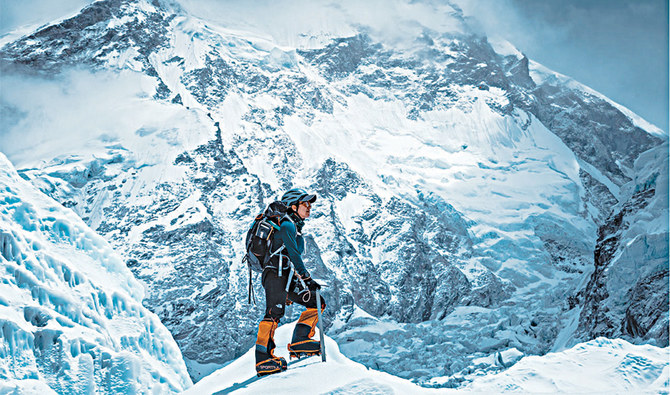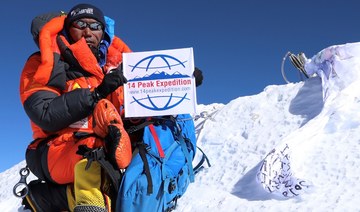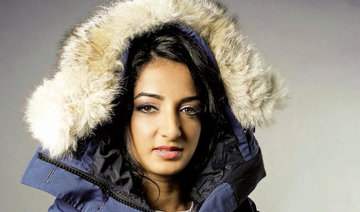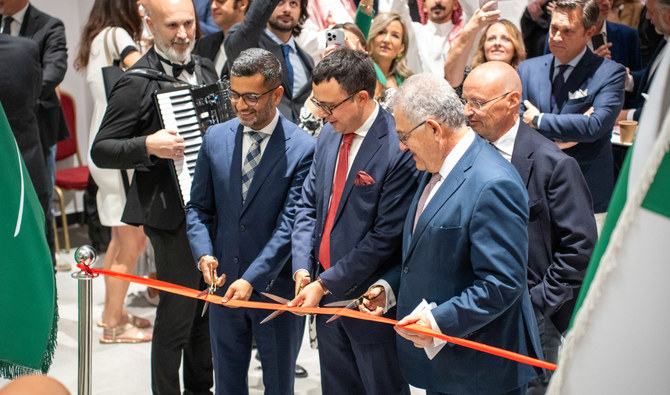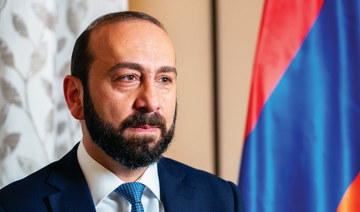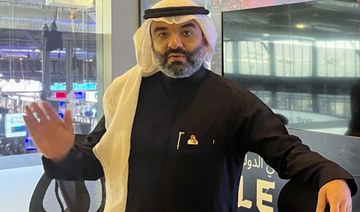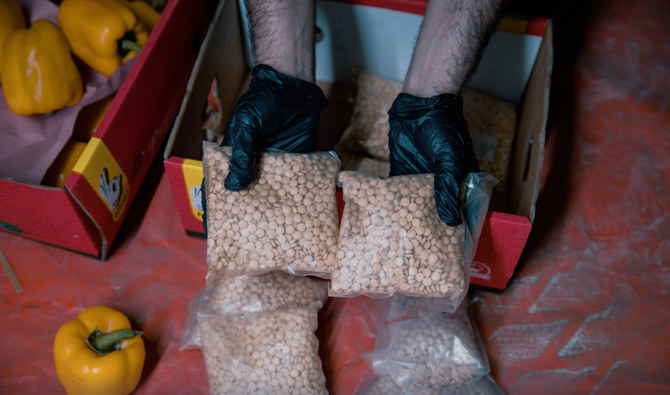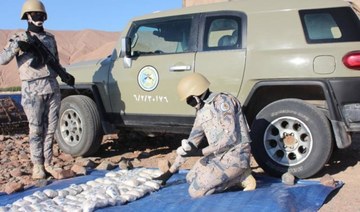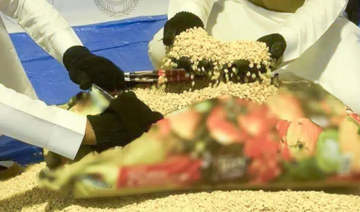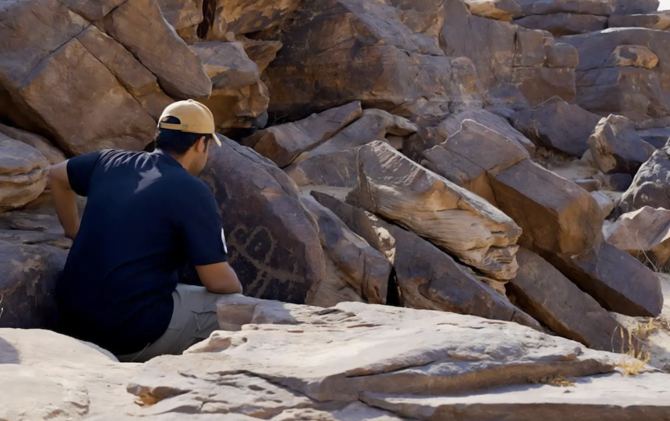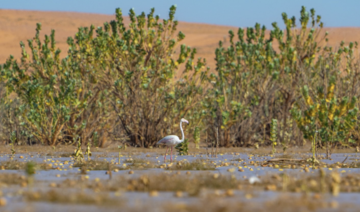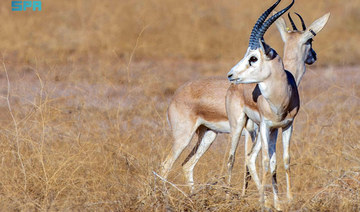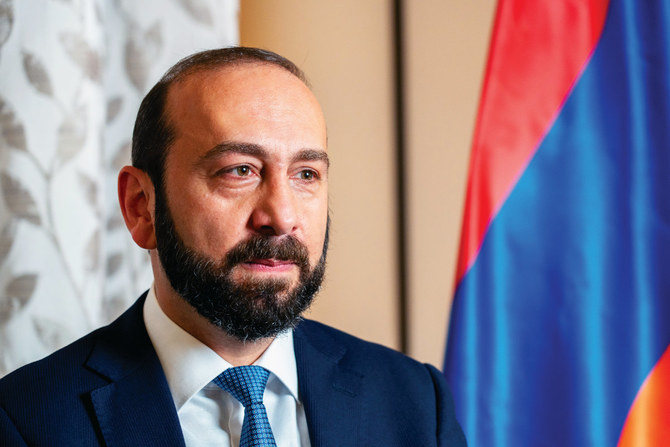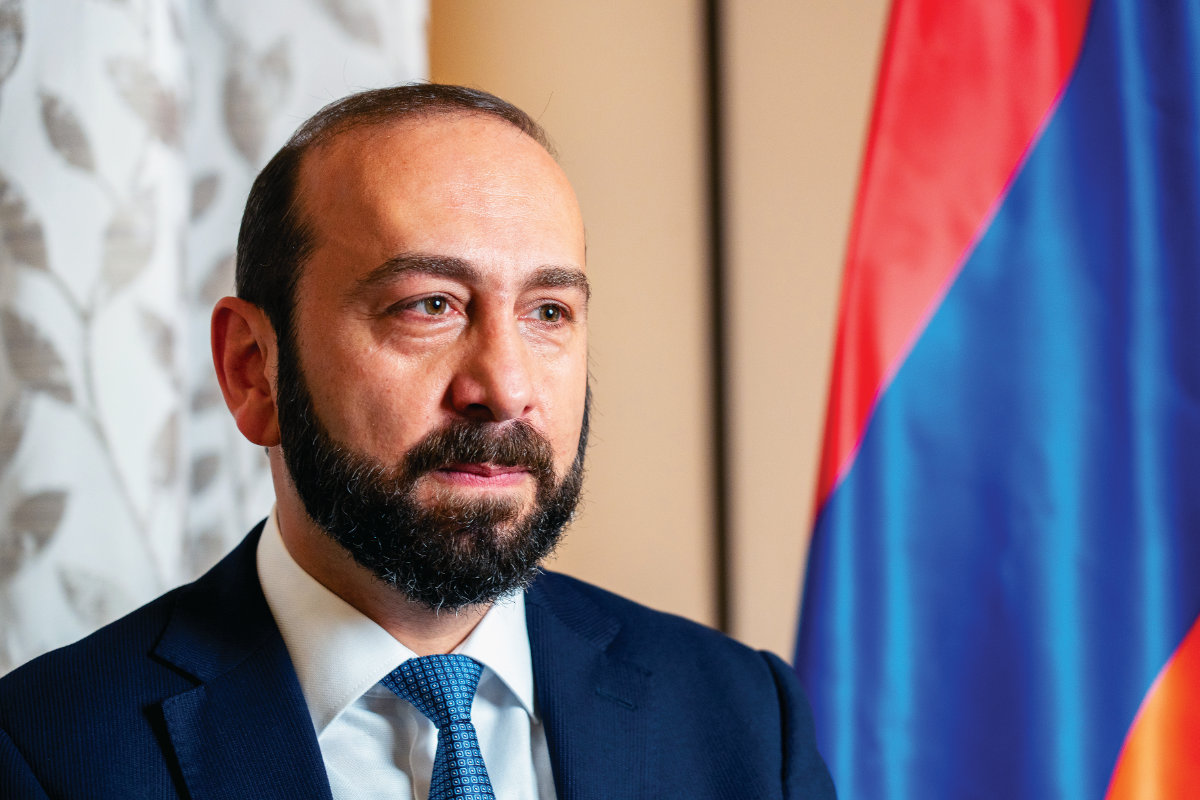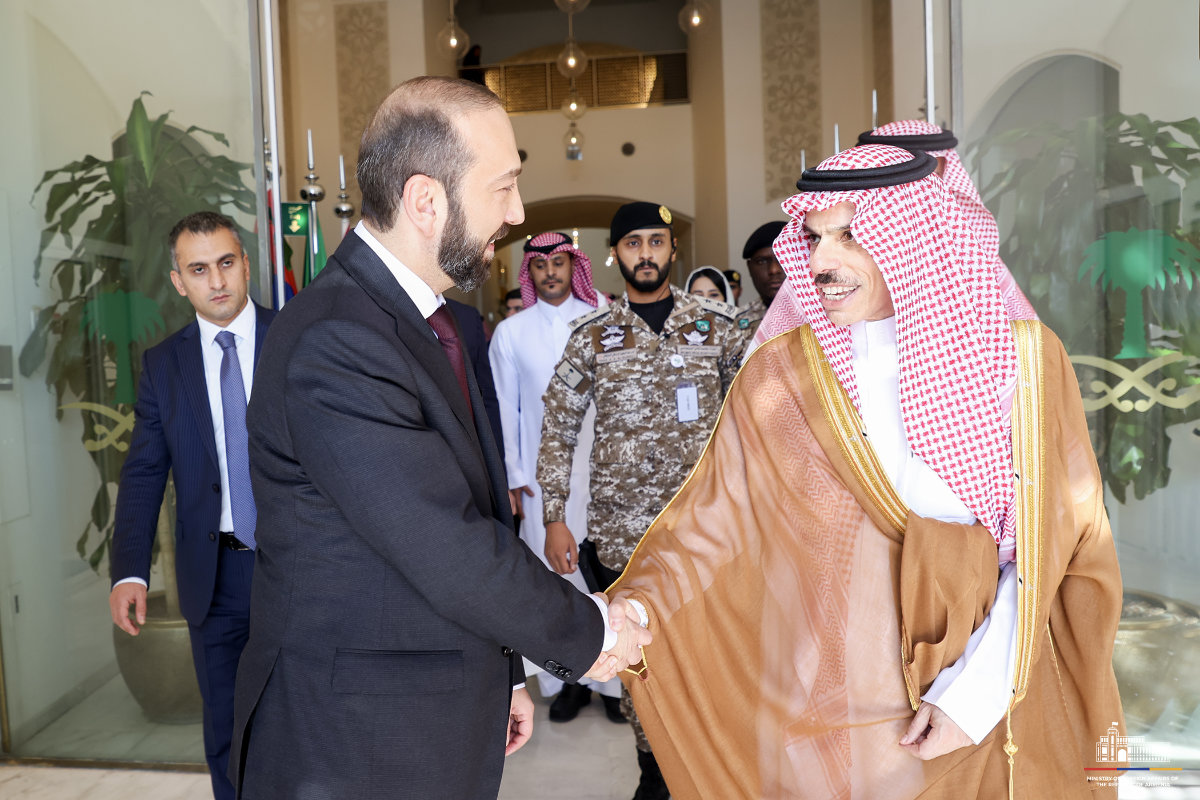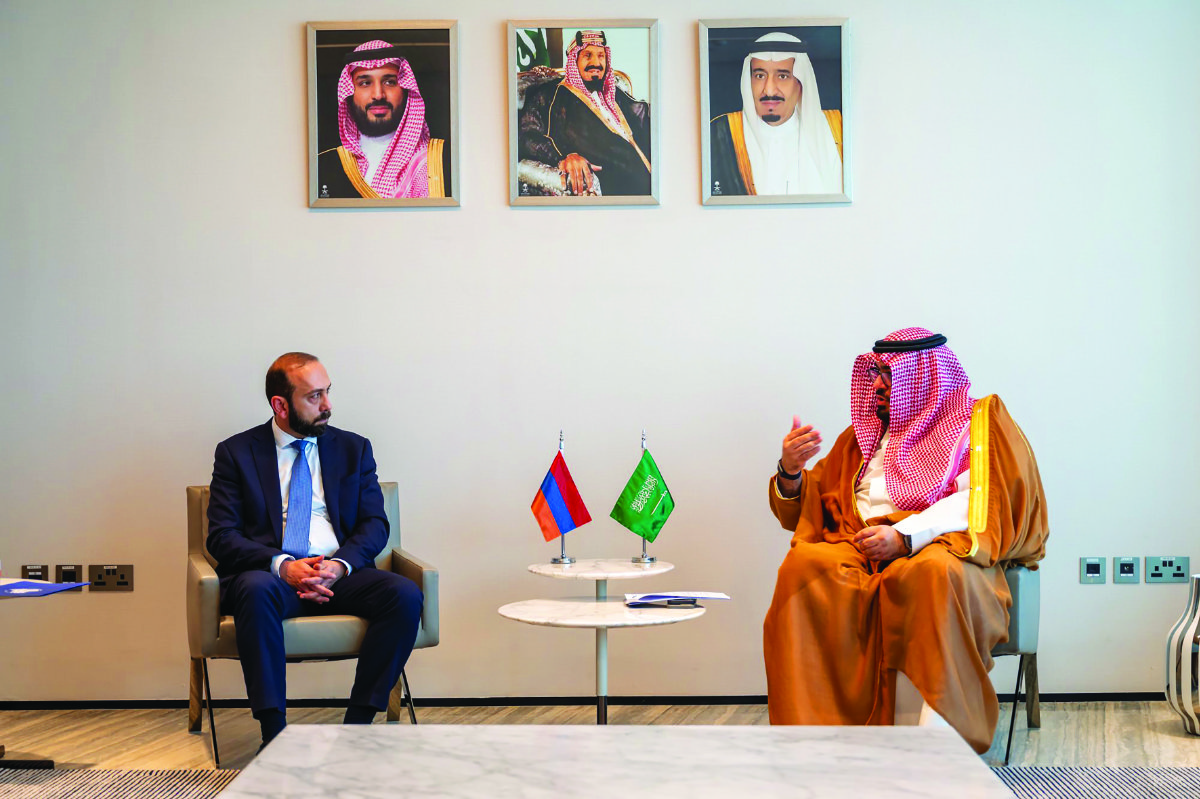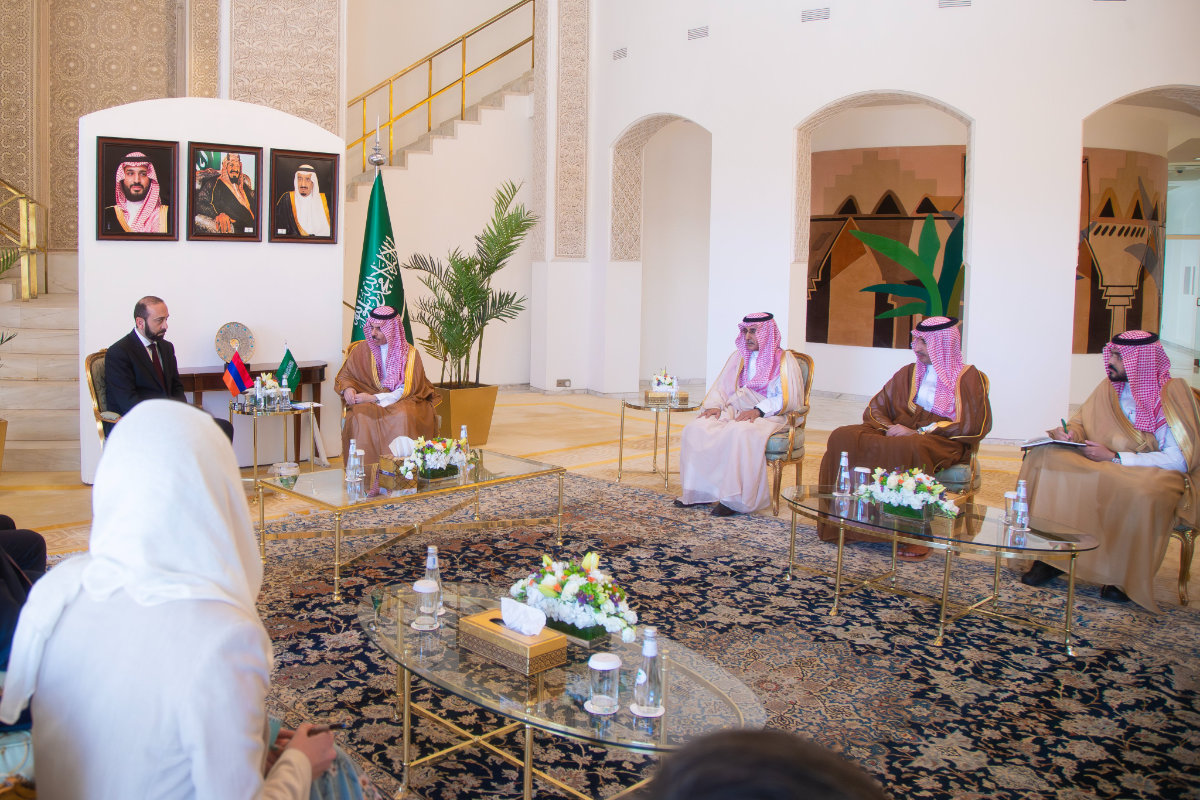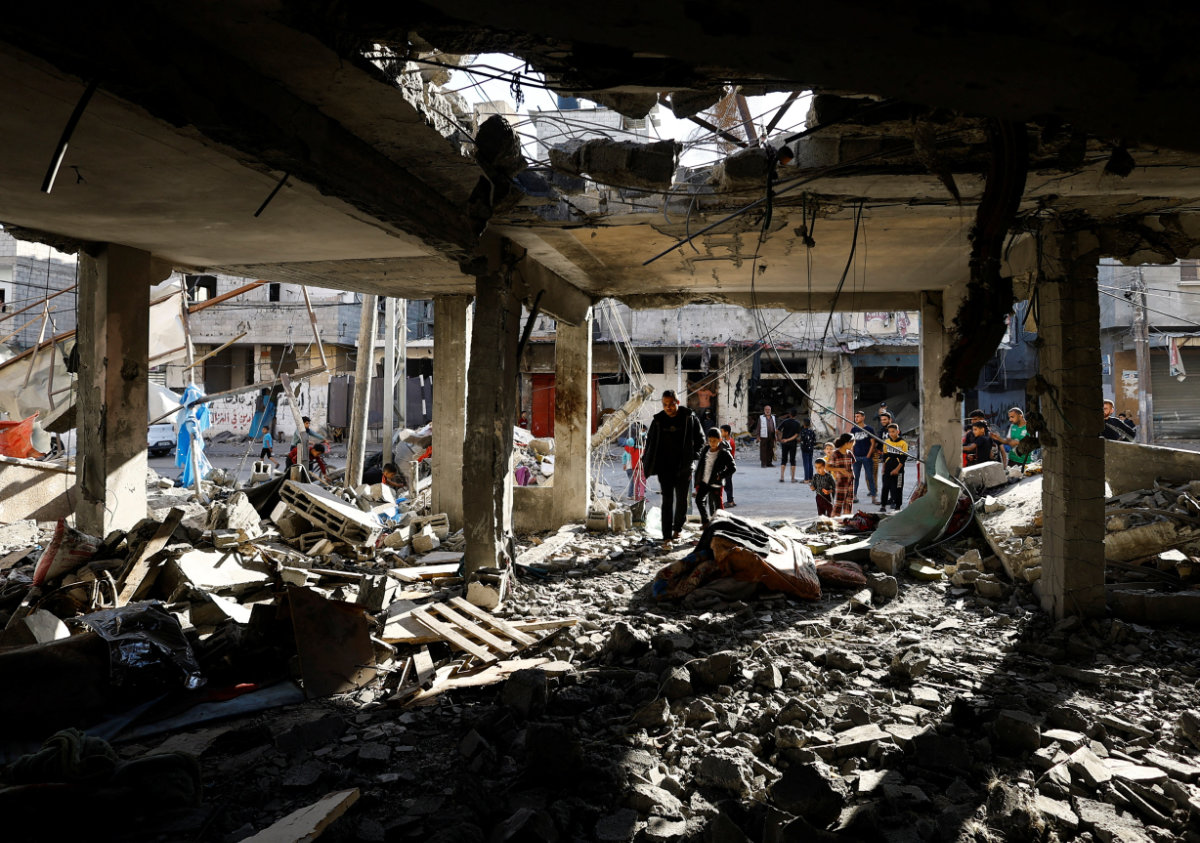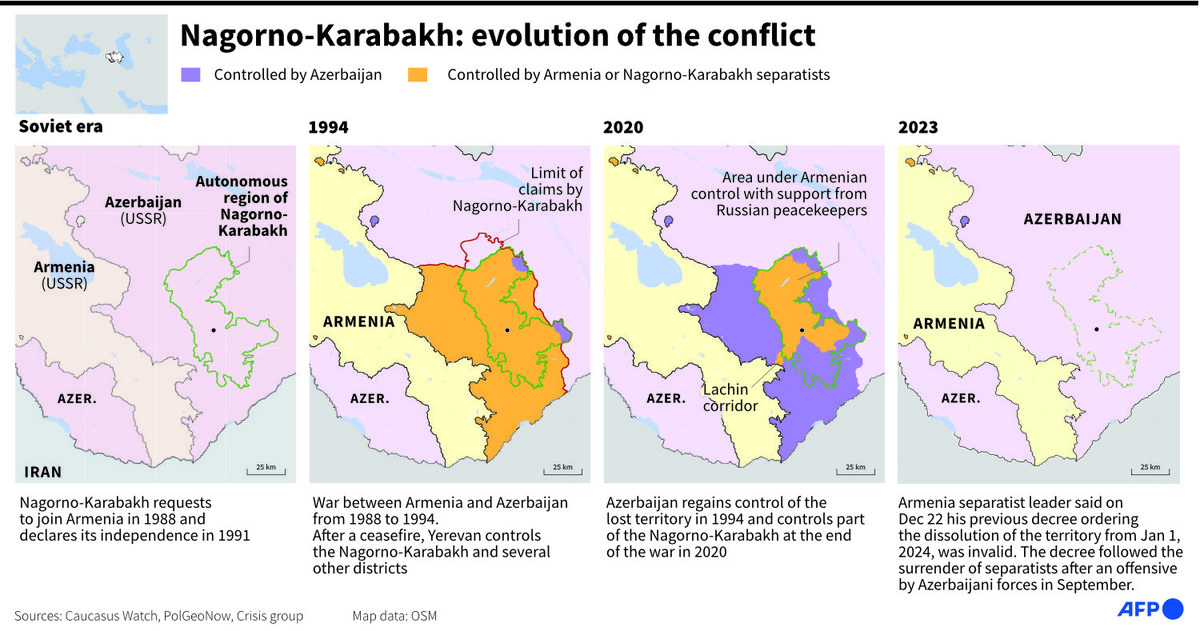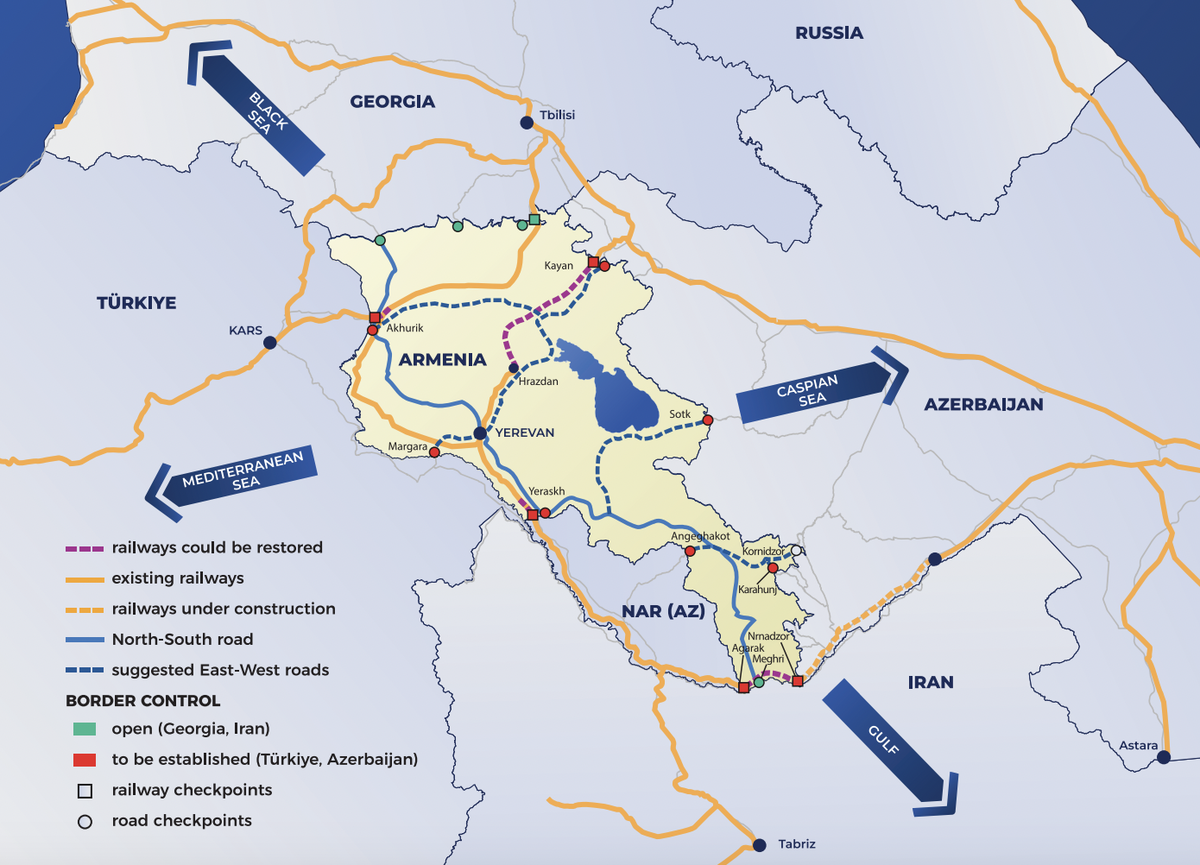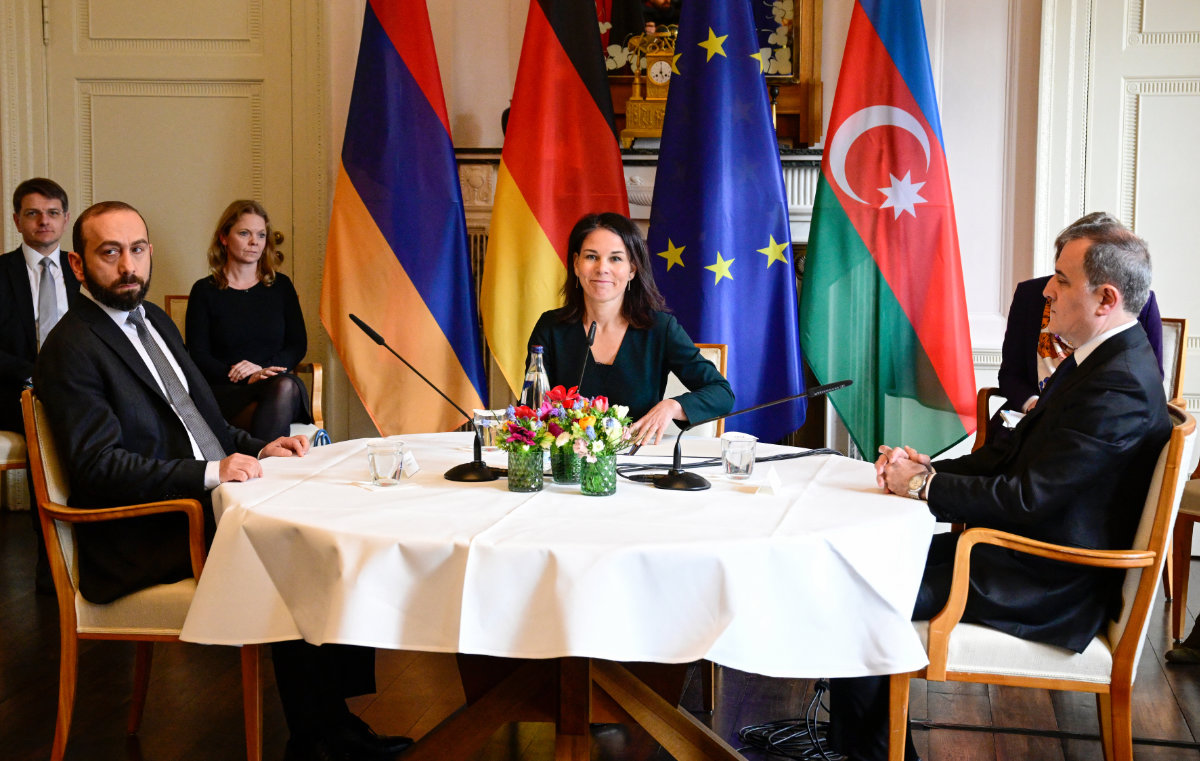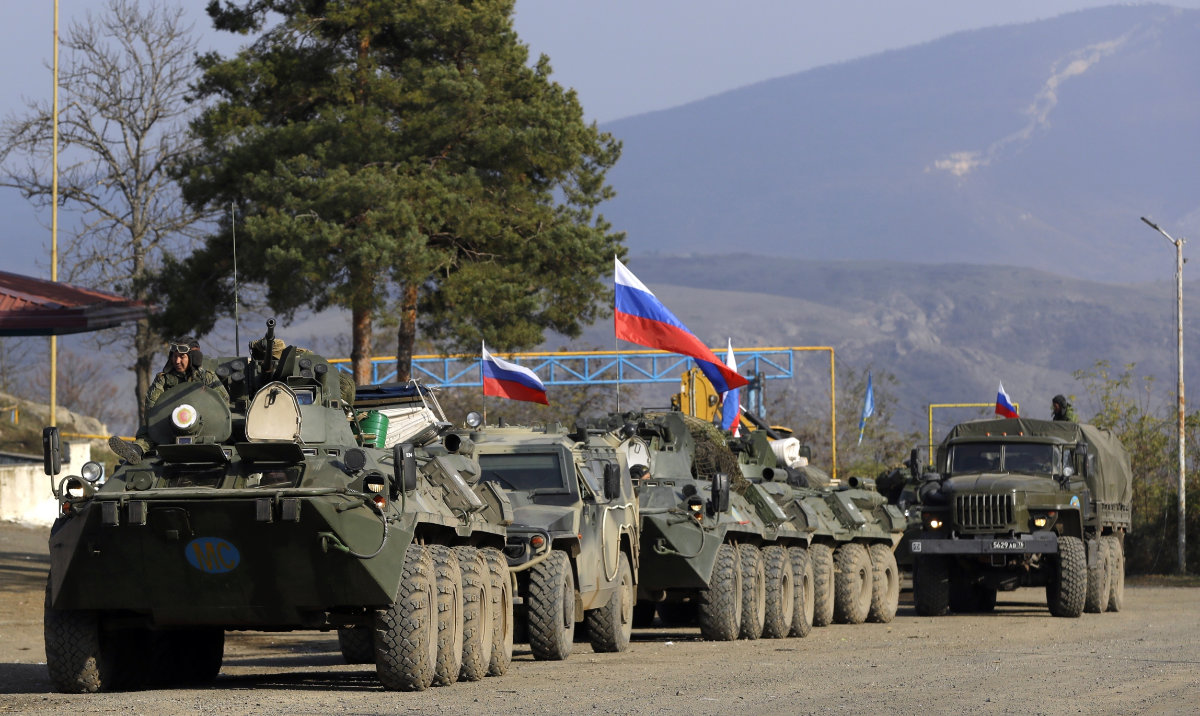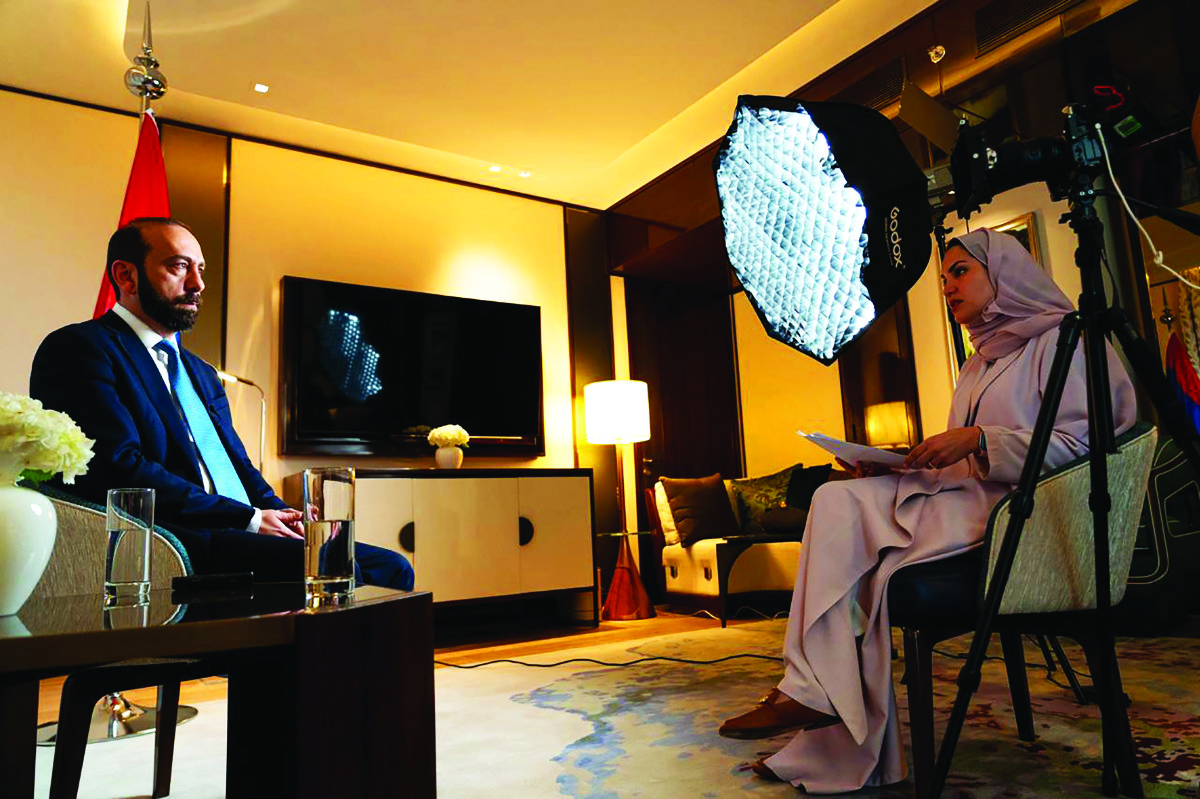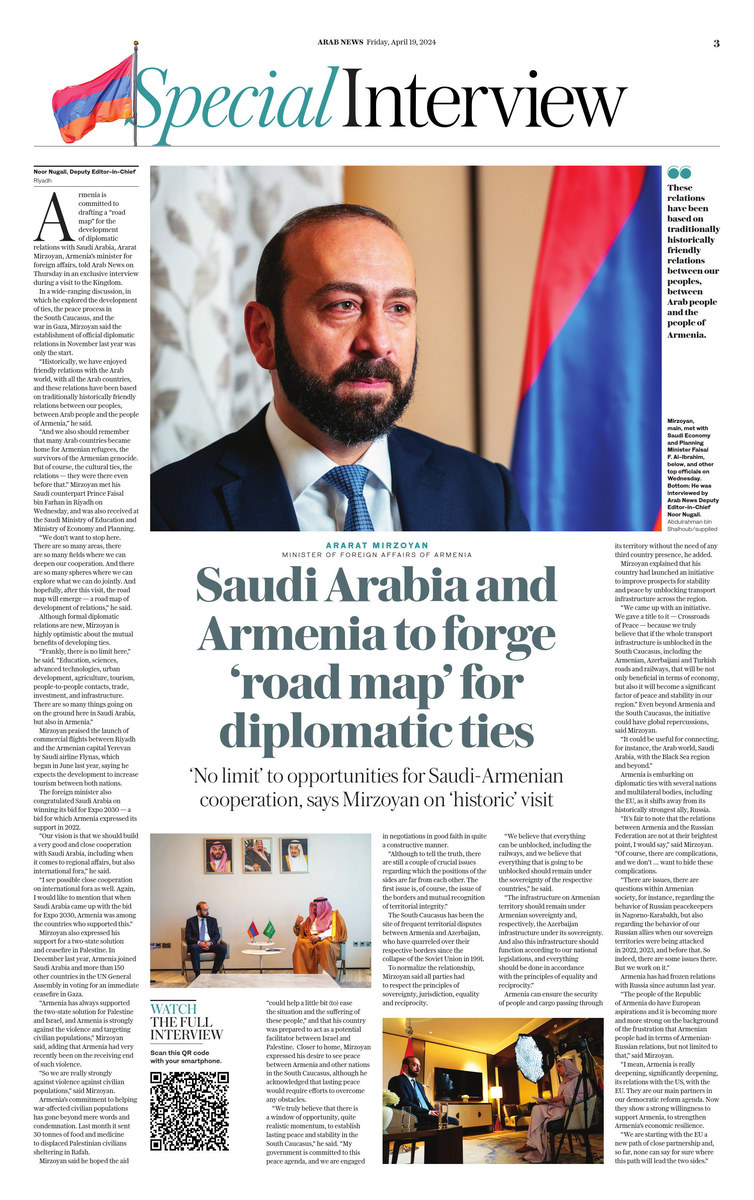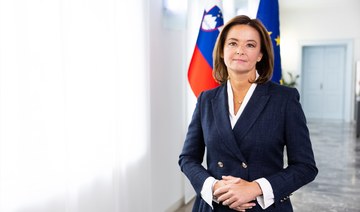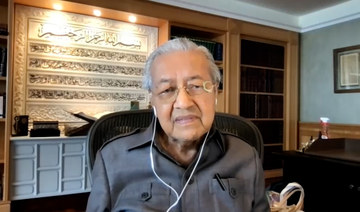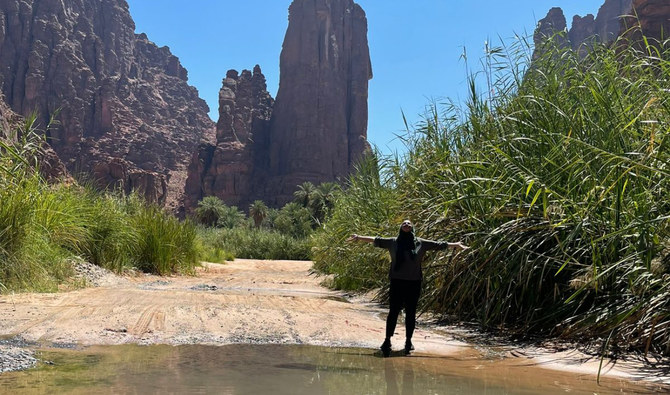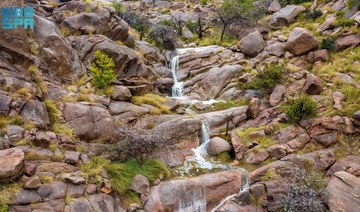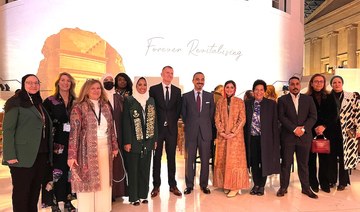From cancer patients to war refugees, the list of beneficiaries of the causes for which Saudi explorer Mona Shahab climbs the world’s highest summits is lengthy. Currently, she is tackling the world’s tallest mountain, Everest. If she succeeds in scaling it, it would see Shahab tick five boxes out of the classic adverturer’s to-do list of Seven Summits — the highest point on each of the seven continents.
Raising awareness and funds — more than $350,000 (SR1.3 million) to date — for charitable causes is what chiefly motivates Shahab to win the Explorers Grand Slam title — that is, to reach the North Pole and the South Pole in addition to the Seven Summits. But beyond that, she wants to send a message to Saudi women — and to the world at large.
“One of my goals is for us to gently shake the world, to change misperceptions, and maybe even shatter some stereotypes. Many raise an eyebrow when they hear a Saudi woman has achieved something,” Shahab told Arab News from the Everest base camp part way through her expedition. “Saudi women can, Saudi women will, reach whatever heights they set their mind and heart to.”
DIZZYHEIGHTS
2012 — Completed Kilimanjaro4 Cancer and helped raise funds to build the first detection cancer center in Saudi Arabia’s Eastern Province. Also completed “A Woman’s Journey: Everest Base Camp” with nine other Saudi women to raise breast cancer awareness in the Kingdom.
2013 — Elbrus4Cancer, scaling Europe’s Elbrus mountain, to raise funds for Umniyaty, Saudi version of “Make a Wish Foundation.”
2014 — MtBlanc4Humanity by scaling Mont Blanc — the highest mountain in the Alps and the highest in Europe west of Russia’s Caucasus peaks — to reinforce the importance of tolerance among citizens of the world.
2015 — Vinson4Mohammed — a mission completed by Shahab standing on the roof of Antarctica for Mohammed, a Syrian boy diagnosed with osteosarcoma. Also completed Toubkal4Smiles, which saw Shahab stand on the roof of the Arab world.
2016 — Kilimanjaro4Mawaddah — to raise funds to help build a safe haven where children of divorcees can meet parents. Also completed LeninPeak4Tomorrow to raise funds to give 100 refugee children in Lebanon tan education.
2017 Aconcagua4Cancer — in Latin America in support of a child with cancer and in memory of her friend Marwa Fayed.
2019 Aims to climb Mount Everest as part of Shahab’s goal to win the Explorers Grand Slam title — to reach the North Pole, the South Pole and all of the Seven Summits.
Together with Joyce Azzam and Nelly Attar, from Lebanon, and Nadhirah Alharthy from Oman, Shahab is part of an all-Arab women’s team aiming to scale Mount Everest, 8,848 metres above sea level, this month.
Next Shahab has her eye on two of the world’s highest seven summits — Australia’s tallest mountain, Mount Kosciuszko, and Denali, the highest point in North America. Once those peaks have been scaled, she intends to make her way to the North and South Pole on skis and become the first Saudi to complete the Explorers Grand Slam challenge.
“Saudi Arabia is not in the Explorer Grand Slam’s books yet and there are dear Saudi friends (HH Prince Bandar bin Khalid Al-Saud and Raha Moharrak) who are closer to it than I am. They have already completed the Seven Summits,” said Shahab, who is a clinical child psychologist by profession. “Less than 50 names are on the current list, so it will be a pretty big achievement when a Saudi’s name is finally included.”
Shahab, who was born and raised in Saudi Arabia’s Eastern Province, said that she loved the outdoors from a young age and was bitten by the hiking bug early on.
“Growing up, my parents would punish me by not allowing me to go outside,” she told Arab News. “I never wanted to be between four walls, boxed up in a room. I have always loved the outdoors.
“Whether playing tennis or softball, I would have bruised knees because I was always outside playing with my friends in a compound once I had completed my homework.”
Shahab said it was when she moved to the US to continue her education that she considered her first altitude hike. “I was working at the Children’s Hospital Boston, and one of my close friends emailed me asking if I would like to join him and his wife who were going to climb Mount Kilimanjaro in 2007.”
Due to visa issues, that trip did not work out. But the idea never left Shahab’s mind.
“Fast forward to 2010, my friends and I are sitting by the sea in India and out of the blue I ask, ‘Kilimanjaro early 2012. Who’s in?’”
By 2011, the trip had been planned. “It just so happened that all of us were members of the Saudi Cancer Foundation in the Eastern Province, and we ended up helping to raise funds for the first early detection centre for cancer in the Eastern province.”
After that first trip, Shahab has never looked back. “So Kilimanjaro was my first high-altitude hike, and I basically exchanged vows with the mountains ever since.”
In 2012 Shahab was part of the first team of Saudi women, headed by HRH Princess Reema bint Bandar Al-Saud, to reach the Everest Base Camp. It was during the expedition that she met a woman who has inspired Shahab.
Shahab forged a friendship with Marwa Fayed, the late wife of Omar Samra, who was the first Egyptian to climb Mount Everest, the Seven Summits and ski to both the South and the North Poles.
“Right after trekking to the Everest Base Camp together, we decided to climb Aconcagua the following year,” Shahab recalled.
However, Fayed, could not fulfill her ambition: three days after the birth of her daughter in 2013, she passed away.
Fayed’s death came as a shock, Shahab said. “So I aimed to climb that mountain in her memory.”
 After failing in 2014, Shahab achieved their shared Aconcagua dream in 2017.
After failing in 2014, Shahab achieved their shared Aconcagua dream in 2017.
Now, during her mission to the top of Everest, it is Fayed’s memory that Shahab holds dear. She is also raising funds for a charity that Fayed founded.
“Marwa had founded a charity called Marwa Fayed’s Toy Run. It had humble beginnings — to collect toys and distribute them to orphans in Egypt. It then expanded to refugee camps worldwide and today the charity is educating children in all areas — from theatre and analytical thinking to space.
“It only takes $500 a year to educate a child on the skills they need to become change agents in their communities. I have joined forces in the hope that we can reach 300 children in underprivileged areas in Egypt.”
Shahab has teamed up with Gento, an anti-bacterial company in the Middle East, which believed in her mission and offered her full sponsorship for her Everest ascent.
Together they are raising awareness on obesity and diabetes, two conditions plaguing both the Kingdom and the wider region, as part of Gento’s commitment to highlight the importance of hygiene and community physical activities.
“We want to motivate people and encourage them to move
and become more physically
active. Research shows that women who are more physically active are at less risk of being diagnosed with breast cancer,” Shahab told Arab News.
“The focus now in the Kingdom is on Vision 2030. In order to move our nation to higher heights, we need to start with ourselves. Let’s get moving, Saudi!
“We want men, women, and youth to toss all those excuses — “I can’t,” “I don’t want to,” “No one’s going to support me” — out the window.”
Shahab, who along with her team-mates hopes to reach the summit of Everest in late May, continued: “We are here. We are standing on our own peaks whatever they may be, one hand, one heart. If we can do it, anyone can.
“Change doesn’t happen in the blink of an eye. It takes time and that is OK.”



